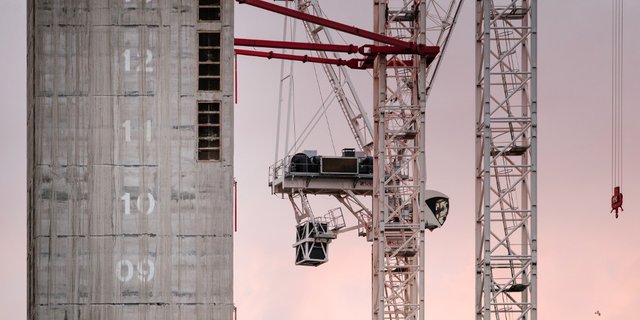How can smart contracts impact the construction market
Construction has always been a collaborative process involving a certain group of participants. Throughout history, communication technology has a significant impact on the relationships among those involved. Right now, it is often cited as ripe for disruption and in the same breath criticized for being slow to embrace the change it apparently so desperately needs.
But everything is not as obvious as it seems on the first sight. Building industry started changing itself with the implementation of new tech already. Building Information Modelling (BIM) has become part of the common parlance in construction notwithstanding limited evidence of its impact on the ground. Now smart contracts appear as a logical extension to BIM whereby the contractual performance itself becomes automated.
Smart contracts have the potential to increase transparency, accountability and provide for a better control of the project in general. A more open building process will eventually lead to a better alignment of industry and client interests while minimising disputes and risks. If we take into consideration the contemporary structure of the construction market (many joint projects, shared equipment etc), we can see that the Blockchain could allow for a faster and more data-driven decision-making process, similarly to what it’s already done with the use of construction software. On top of that, updates about the project could be delivered to everyone in real-time (eg delivery of materials on site). This would considerably decrease project delays and the need for rework (30% efficiency rate - 10% rework in construction at the moment).
Right now, all funds go through banks. The main problem is that with current banking system it is not clear, how this funds are spent. Transactions history is confidential, so there is no transparency. Money can be spent however developer wants. Smart contracts protect money paid by investors. They provide the transparency, because investors can see all transactions that go through the system. And also there is no possibility to fake a transaction or to spend it after the fact.
Here is an example. All money paid by investors will be stored on one account. The terms of how funds will be spent are determined in a smart contract and are clear for every participant. Funds are spent on certain stages and the system doesn’t allow further transactions before it indicates that the work on previous projects is completed.
Let’s explore this concept from the perspective of engineering design of a building. The design company will require the installation of cabling. First the raw material enters the cable manufacturer’s site where the cable reel is created. Payment is made between the parties who own the raw plastic, the copper and steel wire and the party creating the cable. Let’s assume that each cable will have a digital ID which means its usage and requirement can be tracked.
The next transaction is between the cabling installer and the manufacturer. Once the cable is created, the ID is scanned and the cable is ready to move to construction site for installation. A transaction could in theory occur between the sub-contractor or the installer, and the transporter of the cable, once the ID is scanned by the installer when the cabling arrives on site.
The next transaction occurs when the cabling is installed, which then results in the contractor making a transaction to the sub-contractor which then triggers a transaction from the sub-contractor to the installer. The final transaction, upon approval and commissioning, is made when the client makes a transaction to the contractor.
In post-construction, smart contracts have the potential to influence management processes of assets within a building. Digital ledger works to maintain a building, then each asset at its replacement or service period will trigger a sensor, which in turn releases a transaction to the service provider or party to execute the specific term of the contract from service agreement.
For example, when a light fitting reaches its end of life, it triggers the ledger and the transaction is made between the client/end user and the supplier/maintainer to order the replacement light because the system knows the cost of the asset.
Like in all other spheres, smart contracts can help the construction industry to get rid of intermediary parties (eg lawyers). If a bricklayer is done with building the wall, then the system asks for it to be inspected. If the inspection is successful, then the bricklayer is paid. Smart contracts can cover these schemes. They can be registered on the Blockchain and cryptocurrency can be used in order for these contracts to be collateralised.
Now with Smartz you can deploy a variety of smart contracts and no programming skills are required. Stay tuned for updates.

Hi i upvoted your post..You also upvote all my posts...My niche is photography.
Your post had been curated by the @buildawhale team and mentioned here:
https://steemit.com/curation/@buildawhale/buildawhale-curation-digest-06-27-18
Keep up the good work and original content, everyone appreciates it!